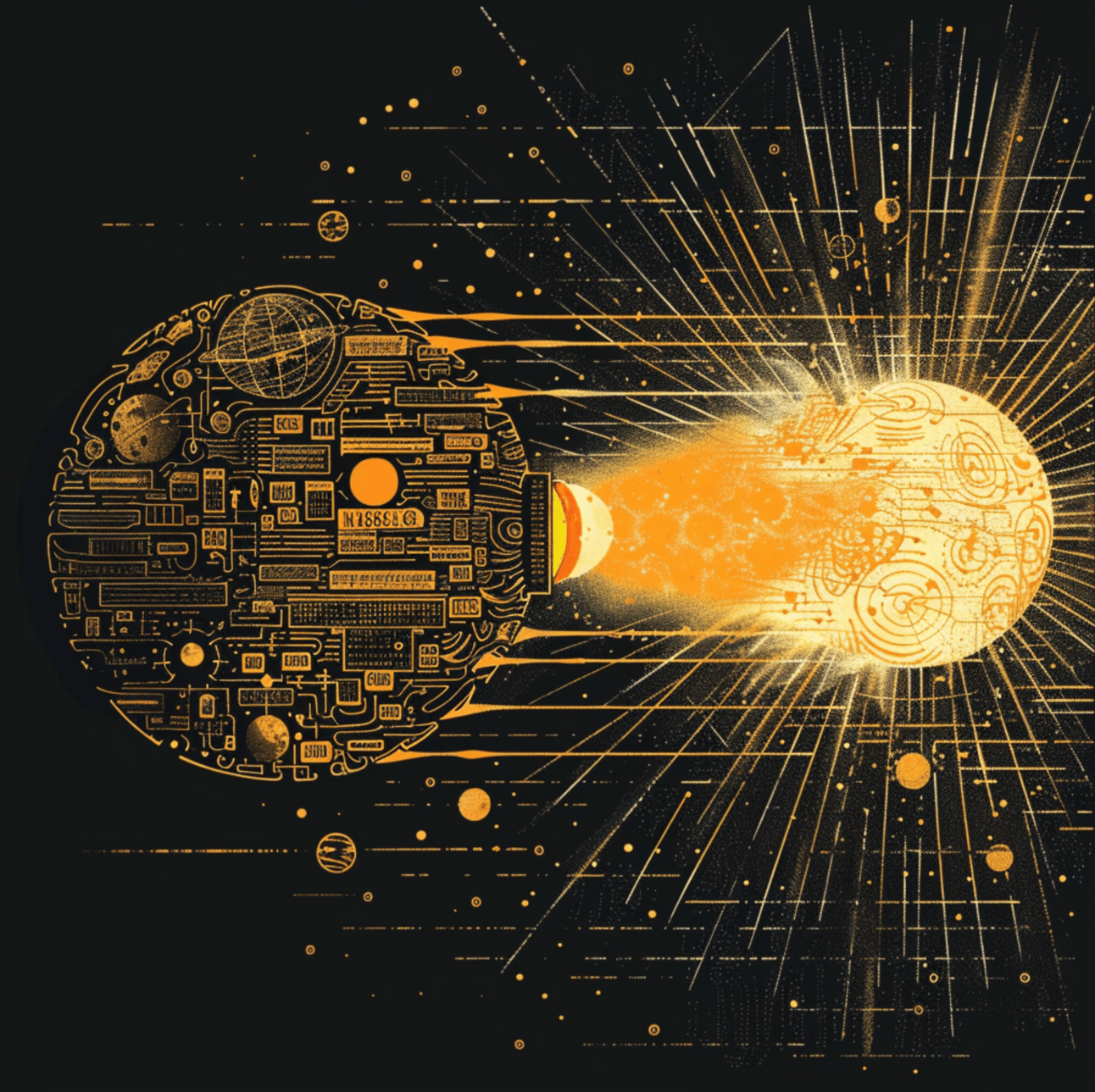The AI Coin-sorter Analogy

I’ve had this analogy in my mind for a while for AI. Specifically, neural nets.
Imagine a coin sorter with a flat surface the size of the sun.
So the idea for sorting coins is that you just throw random coins at it, and they fall into the system and bounce around and get filtered into certain paths.
But in this system, the openings on the surface don’t just have a few sizes of openings, but billions. All different shapes and sizes of slots. And there are also billions of different sizes of coins.
And when you throw coins (data) at the surface of the sun, that’s what changes the shapes of the slots.
But then, it’s actually layer upon layer underneath. And the billions of shapes of the slots on the top layer then shape different shapes and sizes of the slots on the layers below. Also billions.
And it does this for multiple layers.
Now, once you have that in your mind, now imagine that it’s not actually coins. It’s data coming in. Data in the form of light.
Light from Earth.
The Earth is a giant flashlight. It’s shining all the knowledge of humanity at the surface of the Sun.
And as that light hits the full surface of the sun, it carves billions of tiny nooks and crannies into the top surface, which shapes the nooks and cranies on all the thousands of layers below.
Until finally—on the other side—light comes out. And that light is the wisdom of "AI".
A shapeable object
Here’s why I like this visualization.
It shows how the data shapes the filter.
It shows that the light that comes out the other side is the result of both the light and the filter.
It shows that the thing isn’t foreign!
#3 is my favorite.
When all of humanity’s knowledge is sent to the Sun, that’s what shapes the Sun. That’s what burns all those intricate patterns into its layers.
The filter isn’t a separate thing. The filter is Earth’s data, burned into a shape.
And thus, the output of the filter also isn’t foreign.
It’s just a view of what we sent it.